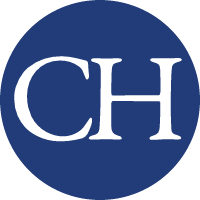FRENCH SOCIAL SECURITY BILL 2013 - SUMMARY OF RELEVANT PROPOSED TAX CHANGES

All eyes may be on the raft of income and capital gains tax changes proposed by the latest Finance Bill, but for those of you pursuing self employment in France, the latest developments proposed by the Projet de Loi de Financement de la Sécurité Sociale, issued on the 1st October, are likely to have a bigger impact on overall taxes payable and net disposable household income.
As with the Finance Bill, I have summarised below the proposed changes that are most likely to impact on our clients.
We will be updating this summary during October as the Bill progresses through its various stages, so please do visit our breaking news page from time to time
(/french_mortgage_and_tax_news.aspx) or contact me, Jon Pawsey, (email: jon@charleshamer.co.uk), if you would like to know how these proposals will affect you and your business tax planning.
1. Aligning Auto-Entrepreneur Social Security Contributions with other Self Employed Regimes.
Currently, the auto-entrepreneur (AE) regime and its related option “Micro-Social” provide a relatively palatable means of introduction to the French world of self employment national insurance contributions (Cotisations à la Sécurite Sociale).
Under AE French Social Security contributions are a function of turnover and are presently set at between 12% and 21.3% of turnover depending on the activity pursued.
The current Bill proposes to align AE and Micro-Social contributions with those payable under other self employed regimes. The impact of the measure is an expected increase in tax take from AE of €150 million, thereby suggesting that in certain cases French NIC for those trading as Auto-Entrepreneurs will increase in 2013.
Bearing in mind that for Micro and AE regimes social security contributions are not tax deductible, whereas those paid under the more standard profit assessment regimes are allowable against revenue, such an increase in contributions could raise serious questions over the continuing suitability of AE in many circumstances.
More on this issue will follow in the next few days.
2. Reform of Self employed Assurance Maladie Contributions for those trading under the regime simplifié.
At present the Assurance-Maladie element of French NIC is front end loaded, being charged at a minimum of €945 irrespective of actual profits made, before being charged at 6.5% and 7.2% on relevant profits up to the Plafond de la Sécurité Sociale (PSS) but 0.6% lower on any excess, with no contribution at all on earnings over 5 times the PSS.
The proposal is to alleviate the burden on low earners in return for a higher contributory rate for those with earnings exceeding the PSS.
The minimum contribution is to be reduced to €307, whilst the flat rate of 6.5%/7.2% will apply to all profits above €14.500 without limit.
3. Reform of Self Employed Contributions for Controlling Directors of Private companies – Tax allowance on salary.
Although effectively self employed in spirit, the salary paid to controlling directors currently benefits from a 10% tax allowance for professional related costs incurred when in practice such costs are already charged as a deduction against company profits.
The intention is to reform this effective double benefit by bringing the tax treatment of controlling directors more in line with those who are directly self employed.
4. Reform of Self Employed Contributions for Controlling Directors of Private companies – IC treatment of dividends.
Similarly, controlling directors can reduce French social security contributions by paying a dividend in lieu of salary – a well known planning tool.
It is proposed to limit this option by including in the base remuneration assessable to French NIC all dividends paid to the controlling director whenever the dividend paid exceeds 10% of shareholder capital. This treatment already applies to Sociétés d’Exercice Libérale (SELARLs). It will be extended to all situations where the company is assessable to French corporation tax (Impôt sur les Sociétés).







